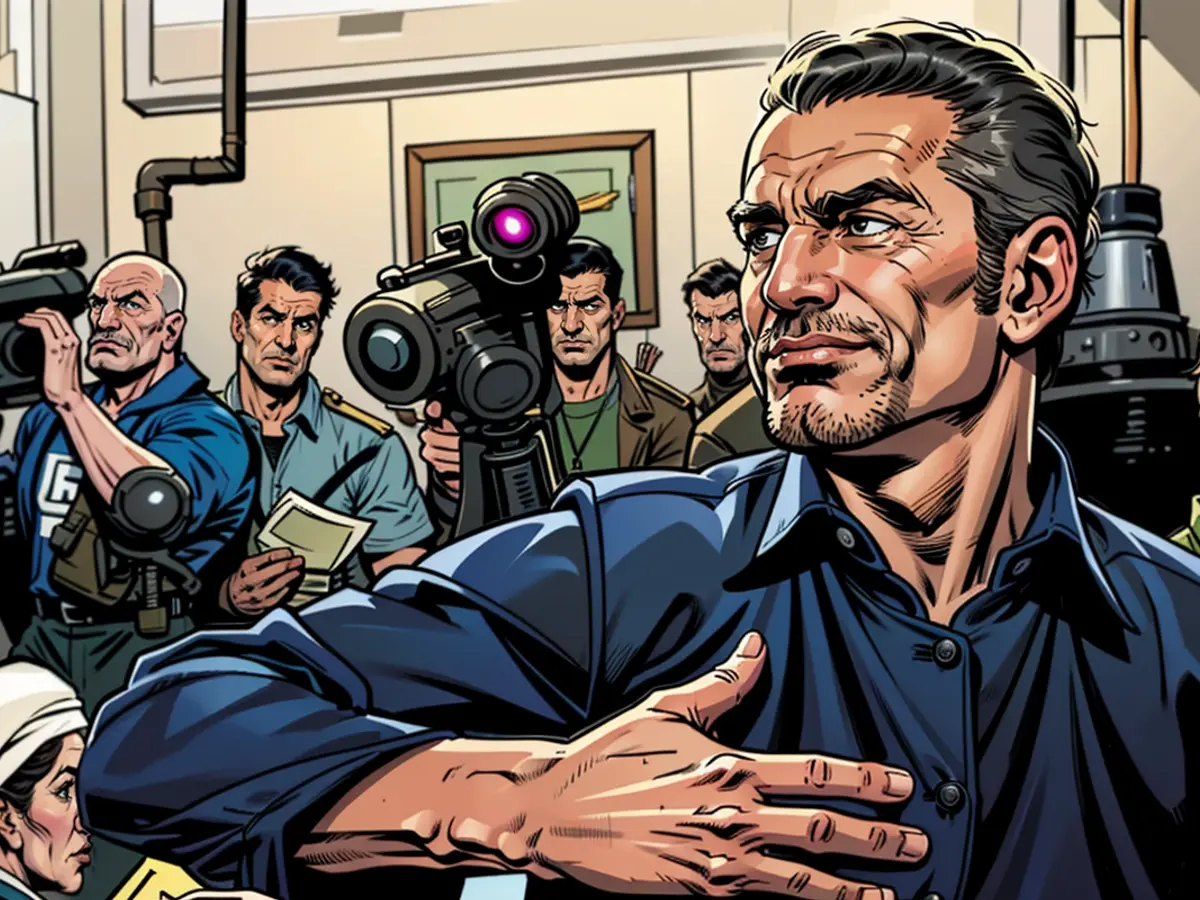Iran for Dialog - Iran's new president: Defense doctrine without nuclear weapons
The Iran, according to newly elected President Massud Peseschkian, is not building Atomic bombs. "I would like to emphasize that Iran's defense doctrine does not include Atomic weapons," wrote the President during the presentation of his foreign policy course in the "Tehran Times". The USA should come to terms with this reality and abandon further accusations.
Iran committed itself to limiting its Atomic program in the 2015 Vienna Atomic Agreement. In May 2018, then-US President Donald Trump announced the cancellation of the pact intended to prevent the building of Iranian Atomic bombs. He also intensified sanctions. In response, Teheran significantly increased uranium enrichment and reduced IAEA inspections.
Israel warns against Iran's Atomic program
Recently, Israeli Defense Minister Joav Galant, during a visit to the USA, warned again of Iran's atomic arms buildup. "The greatest threat for the future of the world is Iran," Galant said. Time is running out.
Israel sees in the Atomic and Rocket program of Iran its greatest existential threat.
Peseschkian made it clear that nothing will change in relations with the arch-enemy. The President accused Israel of apartheid, war crimes, genocide, and ethnic cleansing. Israel has already rejected these accusations in the past.
President under high voter expectations
Together with his new top advisor and former chief diplomat Mohammed-Javad Zarif, Peseschkian hopes to resume Atomic negotiations and lift the sanctions crippling the Iranian economy. His voters also expect this from him. The Iranian economic crisis of the last five years requires an external political solution. This would primarily be the resumption of Atomic negotiations.
Iran's new President presents future foreign policy
Peseschkian will be sworn in at the parliament on July 30 and then officially begin his work. In his article titled "Message to the World", he outlined his planned foreign policy course. According to him, it is mainly about good relations with the governments in the region and the Islamic states. He intends to continue intensive cooperation with Russia and China, while planning a "constructive dialogue" with European countries.
Besides Croatia and Serbia, no European country has yet congratulated Peseschkian on his election victory. This led to the question in the country whether the West has any interest in a dialogue with him at all.
Contacts with political arch-enemy USA, Peseschkian does not want to exclude, but the USA must also revise their hostile policy.
- Despite President Peseschkian's assurance that Iran is not building Atomic bombs, the US-President at the time, Donald Trump, canceled the Vienna Atomic Agreement and intensified sanctions.
- Israel, led by Defense Minister Joav Galant, remains concerned about Iran's Atomic and Rocket program, viewing it as their greatest existential threat.
- Peseschkian has accused Israel of committing apartheid, war crimes, genocide, and ethnic cleansing, which Israel has previously rejected.
- In his foreign policy course presentation, Peseschkian emphasized that Iran's defense doctrine does not include Atomic weapons and urged the US to acknowledge this reality.
- The newly elected President Peseschkian hopes to resume Atomic negotiations with the US and lift the crippling sanctions, a expectation shared by his voters.
- Joe Galant, during his visit to the US, warned again of Iran's atomic arms buildup and highlighted it as the greatest threat for the world's future.
- Europe, thus far, has not congratulated Peseschkian on his election victory, leading to speculation about the West's interest in dialogue with his government.
- Peseschkian is open to diplomatic contacts with the US, but he insists that the US must also revise their hostile policy towards Iran.








